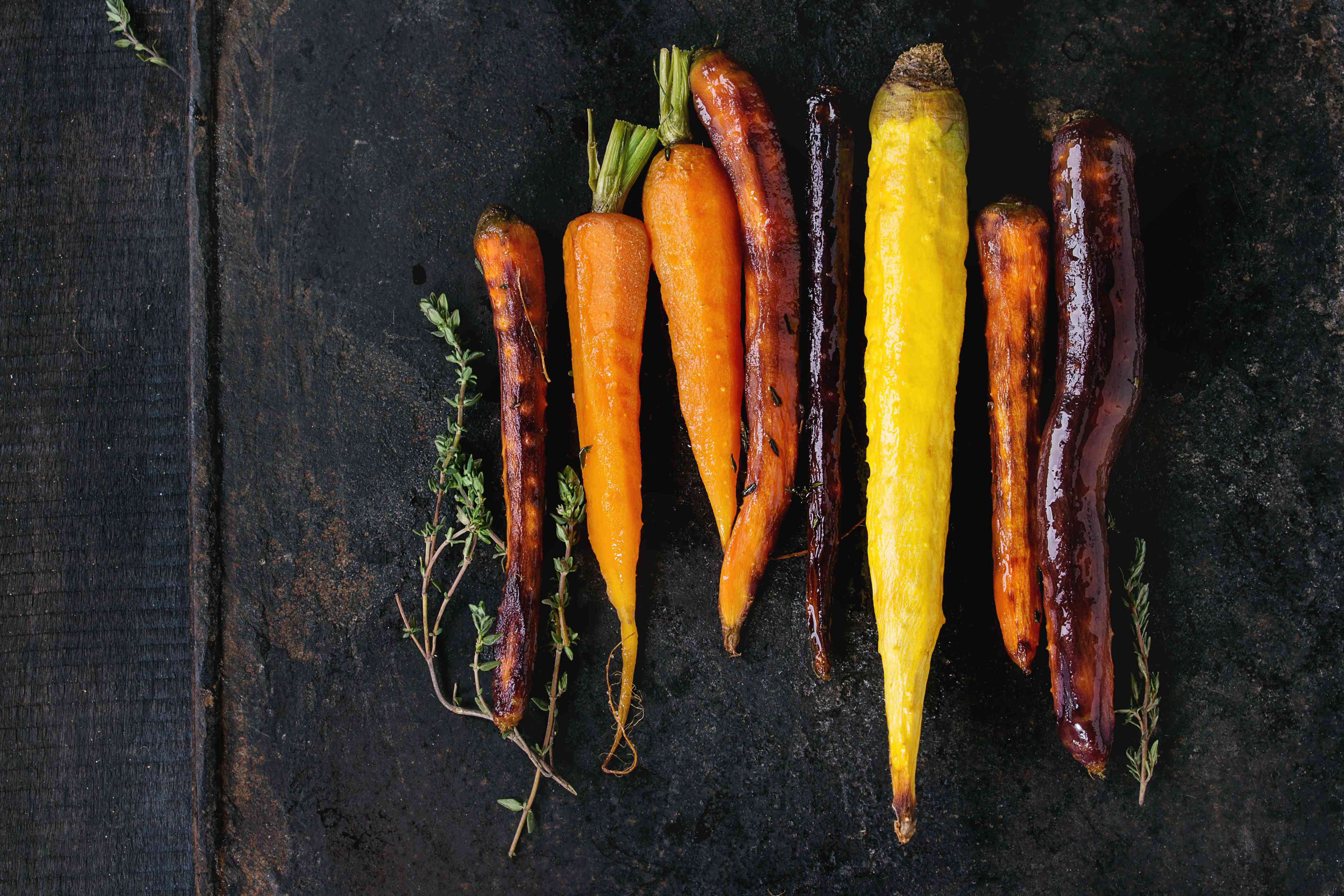
6 VEGETABLES THAT ARE HEALTHIER COOKED THAN RAW
As counterintuitive as it may seem, some fruits and vegetables get a nutritional boost upon cooking.
Most of us have all too many un-fond memories of vegetables cooked into a gloppy mush. With their taste, texture, and vibrancy cooked out of them, it’s no wonder that so many of their nutrients are obliterated as well. With that in mind, raw vegetables rose to rule the roost in terms of nutritional virtuosity.
But for some of us, "raw everything" all the time isn’t that comforting, so it’s good to know that not every vegetable is necessarily healthier when uncooked. The following exceptions to the rule actually gain benefits when put to the heat.
Among the tenets of eating sustainably, there are a few that come into play here. First, given the carbon footprint of food, maximizing the nutrient density of what one eats increases the item's sustainability value. It should also be noted that if we are able to improve our health by something as simple as food choices, we might as well do so—health care is expensive for both the wallet and the planet. Lastly, the more we enjoy vegetables, the better it is for the planet.
1. Pumpkin and Other Winter Squash
OK, so most people aren’t likely making raw pumpkin a staple on their menu. But if you’re forsaking cooked pumpkin (or other winter squash) in favor of something raw because you think it may be less nutritious, you can rethink that strategy. Cooked pumpkin has all kinds of wonderful antioxidants, like beta-carotene, which are easier to absorb once they’ve been heated up.
Related: 8 Fruits and Vegetables You Should Try Roasting Whole
2. Asparagus
Raw asparagus is delicious shaved, but cooking helps break down the thick cell walls that make it hard for our bodies to absorb asparagus’ A, C, and E, and folate. In the case of asparagus, cooking also makes antioxidants, specifically ferulic acid, more available.
"A study in the International Journal of Food Science & Technology found that cooking these stalks raised the level of six nutrients, including cancer-fighting antioxidants, by more than 16 percent," writes Jessica Branch at Consumer Reports. "Another study in the International Journal of Molecular Sciences found that cooking asparagus more than doubled the level of two types of phenolic acid, which some studies have linked to lower cancer rates."
Related: How to Know When Asparagus Is Ready to Pick
A study looking at methods for cooking asparagus concluded that steaming or microwaving retains the most nutrients, noting that "either microwaving or steaming asparagus spears is preferable to cooking by the other tested methods [baking, pan-frying, frying, grilling.]. Overcooking by any method should be avoided."
3. Tomatoes
Few things beat thick slabs of summer heirloom tomatoes fresh from the garden, but cooking them releases the potent antioxidant lycopene. A high intake of lycopene has been linked to a lower risk of cancer and heart attacks. Cooking tomatoes breaks down the cell walls and releases the lycopene for our bodies to enjoy. That said, cooking reduces the vitamin C content, but it is commonly consumed from more sources than is lycopene, so the tradeoff is worth it.
Related: Here's Why the Modern Tomato Tastes Like Cardboard
4. Carrots
A study from the University of Arkansas found that cooked carrots have higher levels of beta-carotene. Beta-carotene belongs to a group of antioxidant substances called carotenoids, which give fruits and vegetables their red, yellow, and orange colorings. The body converts beta-carotene into vitamin A. "Vitamin A is important for many functions in the human body; in particular, it is essential for normal growth and development, immune function, and vision," according to a study published by the National Library of Medicine. They note that preformed vitamin A is present only in animal products; thus, in countries where the intake of animal products is low—or for people anywhere choosing a plant-based diet—vitamin A requirements are mostly met by carotenoids.
5. Mushrooms
While we may be accustomed to seeing cooked mushrooms more so than raw ones, uncooked mushrooms certainly have their place in salads and raw food diets. However, they too benefit from some time on the fire, so to speak. Andrew Weil, MD writes for Prevention that mushrooms are essentially indigestible if you don't cook them, adding: “Thoroughly heating them releases the nutrients they contain, including protein, B vitamins, and minerals, as well as a wide range of novel compounds not found in other foods. In Asian traditions, mushrooms are regarded as both food and medicine because they can support the body's natural defenses by enhancing the immune system.”
Related: This Is the Best Way to Clean Mushrooms
How you cook them makes a difference, too, according to a study from Spain that looked into mushrooms' nutrient profiles after different cooking methods. "When mushrooms were cooked by microwave or grill, the content of polyphenol and antioxidant activity increased significantly [over boiling or deep frying], and there are no significant losses in nutritional value of the cooked mushrooms," said Irene Roncero, one of the authors of the paper.
6. Spinach
Raw versus cooked spinach offers a trade-off. Vegetarian Times writes that folate, vitamin C, niacin, riboflavin, and potassium are more available in spinach when it is eaten raw; cooking increases the vitamins A and E, protein, fiber, zinc, thiamin, calcium, and iron—as well, important carotenoids, such as beta-carotene, lutein, and zeaxanthin, also become more absorbable when spinach is cooked. In this case, why not mix and match raw and cooked?
In the end, comparing nutrients in raw and cooked vegetables is complicated, and there will be trade-offs. Rui Hai Liu, a food scientist from Cornell University, reminds us that there are still many mysteries surrounding how the different molecules in plants interact with the human body.
Given what we know, the best approach seems to be: Eat a variety of fruits and vegetables and eat them in a variety of ways. This ensures that you’re getting a mix of nutrients delivered by various methods of preparation.
The bottom line is to eat your fruits and vegetables no matter how they're prepared. "We cook them so they taste better," Liu says. "If they taste better, we're more likely to eat them."
Related: 8 Fruits You Think Are Vegetables
2023-07-31T18:18:18Z dg43tfdfdgfd
